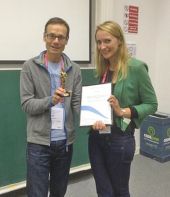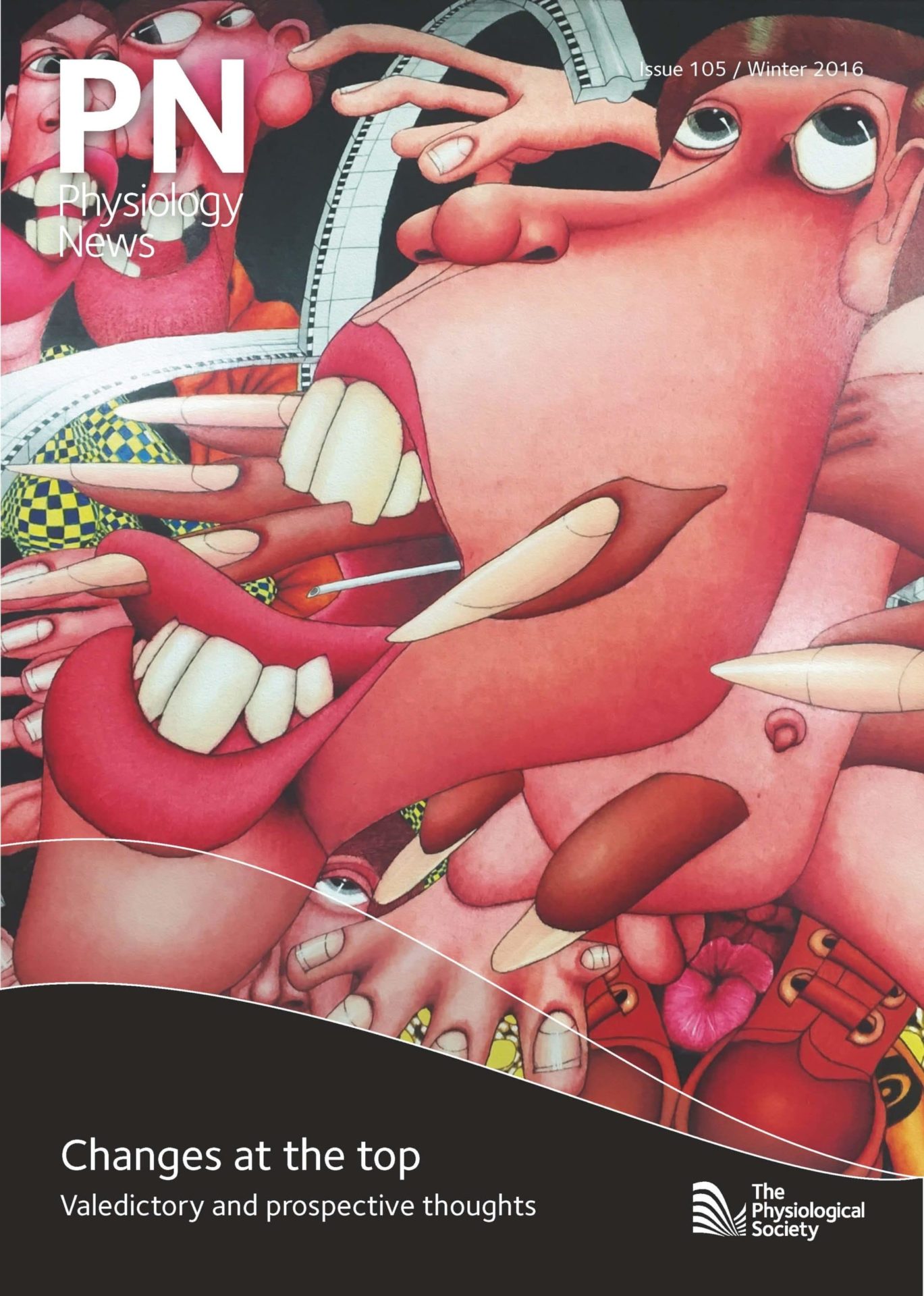
Physiology News Magazine
Limits of Perception: Advances in Bio-imaging
8-11 August 2016, University of Warwick, Warwick, UK
Events
Limits of Perception: Advances in Bio-imaging
8-11 August 2016, University of Warwick, Warwick, UK
Events
Daniel Stuckey, Tim Witney & Mark Lythgoe
Centre for Advanced Biomedical Imaging, University College London, UK
https://doi.org/10.36866/pn.105.16
Nearly two years ago the Physiological Society approached us at University College London’s Centre for Advanced Biomedical Imaging (CABI) to help them plan and organise a Topic Meeting. Our goal was to explore the interface of biomedical imaging science and physiology, emphasising the next generation of imaging tools that may not be visible to those in the field of physiology. We were excited by the challenge of bringing together many of the world’s leading imaging researchers in order to bridge that gap in understanding. Our primary aim was to kindle discussion and future collaboration across all scales of physiology and imaging, from the microscopic, through to the whole organism and into the clinic. In order to facilitate discussion we decided to make the conference residential, so there was nowhere to escape! Thankfully Warwick University provided the perfect venue, with good food and a well-stocked bar!
We were delighted to have been able to attract such a broad range of truly leading international scientists to speak about the next generation of imaging tools, including the current President of the World Molecular Imaging Society, Prof Christopher Contag. Notable highlights included Clare Elwell’s use of Near Infrared Spectroscopy to image autism in babies in rural Africa, Chris Contag’s next-generation fluorescent endoscope and Dara Kraitchman’s use of MRI to image large animals (including a tiger at one point!), to name but a few. We were also fortunate to hear a wide range of exceptional proffered talks from young investigators. The success of the meeting however was not built around the speakers or the programme, but relied on the audience. What stood out for us was the quality of the discussions after every talk, sometimes lasting 30 minutes or more. The fear of being called upon for a question by our random number generator, made sure everyone from the audience had a contribution for each speaker!
This Topic Meeting provided the platform for us to learn, challenge and interact with scientists from different disciplines, whilst building relationships that hopefully can change imaging science in physiology. But most importantly we had lots of fun, enjoyed the exciting science and made some new friends.

